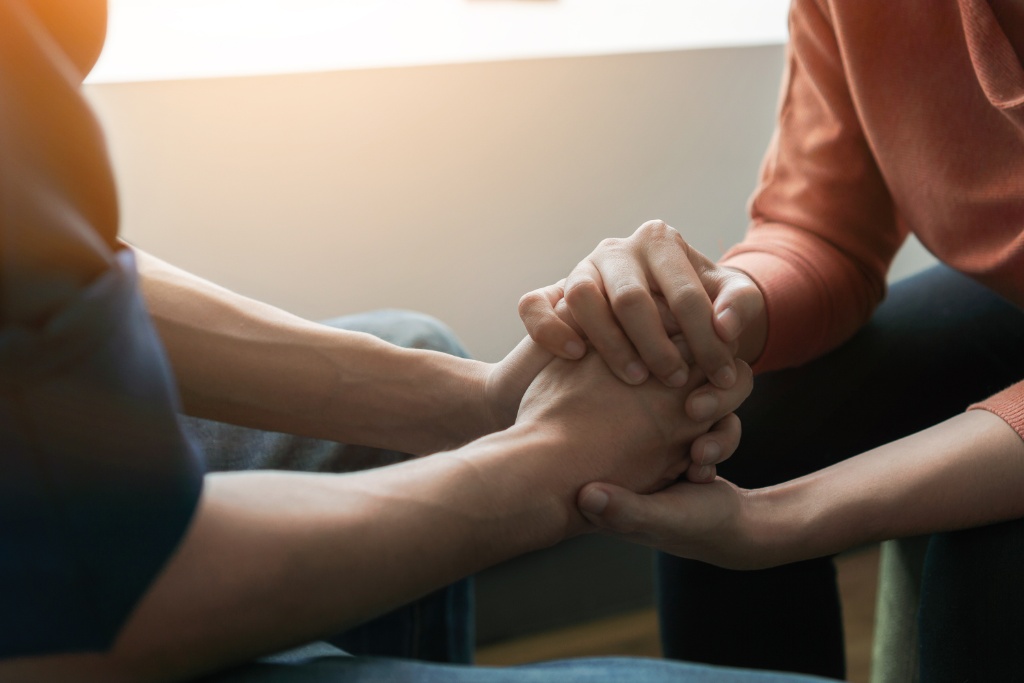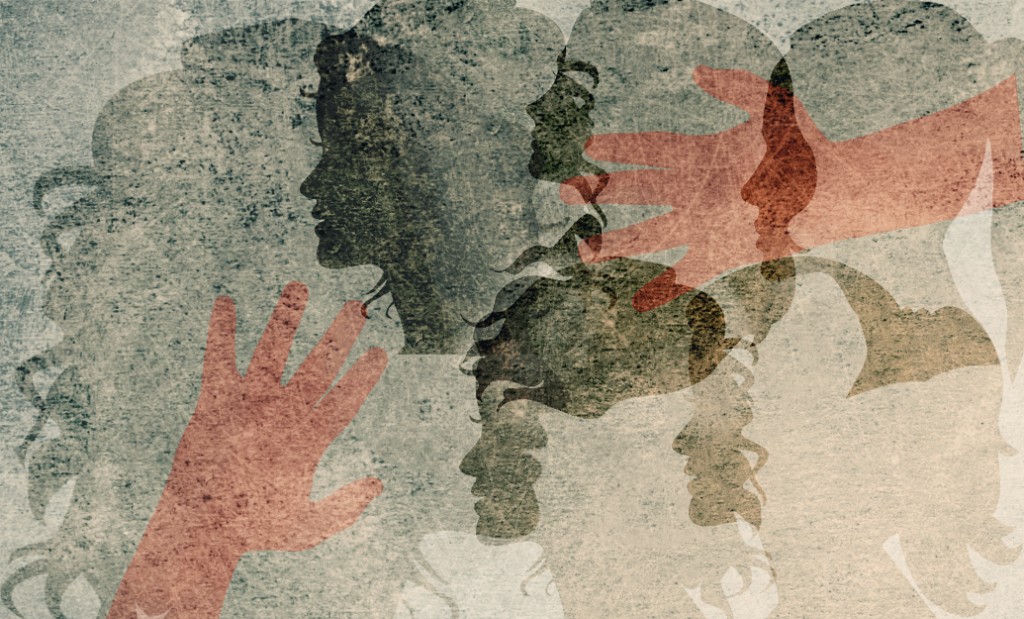Edmonton Institutional Abuse Lawyers
Get legal answers now. Speak to our lawyers.
Speak with our Edmonton institutional abuse lawyers and get legal answers to your institutional abuse questions.
Table of Contents
What constitutes institutional abuse in Edmonton?
When members of an organization who supervise or control participants use that power to commit sexual or physical abuse, it is abuse. When that organization does not adequately protect its participants and allows abuse to happen more frequently, it is called institutional abuse. Abuse can spread like wildfire, and systemic or institutional abuse is despicable.
The hallmark of institutional abuse is a misuse of power and a betrayal of trust. It occurs when a person in a position of authority, trust, or dependency exploits the power imbalance between themselves and younger and/or more vulnerable people. Perpetrators of institutional abuse might use threats of violence, emotional manipulation, blackmail, and other forms of coercion to force someone into engaging in non-consensual sexual activity.
At the core of the issue, institutional abuse of children teaches innocent souls not to trust others, and particularly those in authority. If you are taught to mistrust others in your community, it is hard to engage with society in a positive manner. These common issues make completing education and vocational training challenging. Once in the workforce, survivors find it challenging to be consistent in work performance and attendance. Survivors often have lifelong limitations and rarely reach their potential.
While abuse can happen to adults by medical professionals or law enforcement, children are the most vulnerable. Unfortunately, we are realizing that historical and current institutional abuse of minors is more common than society once thought.
Let us put our experience to work for you
Tell Us What Happened
We are here to help Albertans get the compensation and benefits they deserve after being injured in an accident. We take this responsibility very seriously. Book your free call with our personal injury lawyers today and let us help you.
Our phone lines are open 24/7.

How does institutional abuse happen?
Oftentimes, sexual predators seek out employment or volunteer opportunities in settings that place them in close proximity to potential targets. They are often employed as:
- Teachers
- Religious leaders
- Sports coaches
- Scout leaders
- Camp counselors
- Extracurricular program administrators
- Caregivers
- Foster parents
- Juvenile detention center guards
- Psychiatric hospital employees
- And more
Given that predators will seek out work with children, institutions have a duty to be cautious about who they employ, how they permit members to engage with children, and how they respond to complaints.
Sometimes, an employer might be aware of a complaint or even become aware of abuse taking place in their organization. Historically, many reports were not taken seriously. Further, performing a thorough investigation may be challenging with conflicting statements and the necessary punishments. Finally, exposing abuse will stigmatize the organization, so management may be hesitant to undermine their organization. However, institutions owe it to those under their care to take any complaints seriously and ensure their members, and especially children, have a safe environment.
For the reasons above, many organizations fail to adequately address the issue and take punitive measures against the perpetrators of institutional abuse. Failing to address abuse in a timely manner will lead to worse outcomes for each victim and will also lead to more victims. This is often referred to as “systemic” or “institutional” abuse. If we prove that a sexual predator’s employer or another organization responsible for introducing the abuser to their targets was guilty of systemic or institutional abuse, that entity might be considered liable for damages incurred by the abuser’s victims. This is called vicarious liability.
What Types of Compensation are available to institutional abuse victims?
The long-term impacts of institutional abuse can be physical, psychological, emotional, and economic in nature. Many survivors of institutional abuse develop severe mental health disorders, as well as unhealthy coping mechanisms that might include self-harm, suicidal ideation, and substance abuse. Indeed, people who have been subjected to sexual violence are 13 times more likely to develop alcoholism and 26 times more likely to develop substance use disorders than non-victims.
Due to the pervasive struggles faced by the survivors of institutional abuse, many former victims suffer financial consequences. Many children and teenagers who were abused by trusted authority figures find it impossible to complete their education, resulting in a failure to reach their fullest earning potential. They could also incur substantial financial losses related to psychological counselling, addiction treatments, and other costly services required to address their past trauma.
- Pain and Suffering:
All abuse claims are significant. Survivors live with this abuse for the rest of their lives. Compensation for your pain and suffering will reflect the severity of your injury and how it changes your employment and your life.
- Lost wages:
Securing lost past and future wages is often the largest portion of your claim. Survivors struggle with education and maintaining work, which means they rarely meet their potential. Claims for past wage loss can account for a loss for each year of your employment. Given the nature that these claims can last decades, the interest in the past wage loss can also be quite significant.
- Special Damages:
Survivors often pay for mental health medication and psychological treatment. You are entitled to be repaid for these expenses.
- Future Treatment:
While you may be out of treatment at the time of settlement, doctors will often confirm that you may need further psychological treatment or medications in the future. Everyone has ups and downs emotionally, and when you are living with ongoing symptoms, having access to ongoing mental health treatment can be important.
How do institutional abuse lawsuits work in Edmonton?
Thankfully, there is no limitation period for most sexual abuse claims. Speak with our team to discuss your claim. There are several important parts of your action:
- Investigate the Claim:
Research on the abuser and the organization can be important to recovering damages in your claim. Searching media and court records can be invaluable. In abuse lawsuits, it is important to find all the correct parties. Religious organizations can be complicated legal entities.
- Begin an Action:
Thankfully, there is no limitation period for abuse claims. It is important that you do your research to name all the right parties.
- Exchange Records:
Both parties have the right to request and secure records related to the claim. In this phase, we use records to demonstrate the extent of your injuries.
- Questioning:
This is an opportunity for the lawyers to ask the parties questions about the facts and consequences of the abuse. Asking questions under oath is an important part of all lawsuits.
- Mediation/ADR:
This is an informal process to attempt to settle your claim. This may be in person or by video.
- Trial:
Most cases settle before trial, which can avoid the delay and stress of a trial. However, when the parties cannot agree on a settlement, presenting your case to a judge to assess the case is the solution.
How can an institutional abuse lawyer help with an institutional abuse claim?
Being the victim of institutional abuse can have profound, lifelong repercussions. This is especially true for people who were victimized as children or adolescents. Being subjected to sexual violence and coercion from a young age can continue to haunt survivors of institutional abuse well into their adulthood.
In accordance with the province’s Limitations Act, there is no time limit on institutional abuse claims. That means that, even if your abuse took place many years ago, you might still be eligible to pursue a civil claim to recover damages you have incurred as a result of being abused. Our Edmonton institutional abuse lawyers may be able to work with you to help you get the compensation you deserve.
To learn more about working with our institutional abuse lawyers serving Edmonton, contact us today and receive a free initial consultation on your case.
Book a Free Consultation with our Edmonton Institutional Abuse Lawyers
Throughout the province, an estimated 1.8 million people have been victims of sexual violence. That is nearly one in two members of the local population. Our Edmonton institutional abuse lawyers are passionate about fighting on behalf of people who were subjected to the criminal actions of sexual predators. To learn how we may be able to help you get the closure and compensation you deserve, contact us.
Call us now to receive a free initial consultation with our Edmonton institutional abuse lawyers.
Do you live in Edmonton? Here’s how we can help:
Notable Achievements
Awards and Recognitions
Proud to be one of Canada’s oldest personal injury law firms. The firm was founded in 1959 and has now grown to numerous offices across Canada. We have cumulatively secured over $1 billion for thousands of Canadians and are proud to maintain a high standard for our professional services without compromising on care or compassion.
Read More On institutional abuse Claims
Here are some blogs on institutional abuse claims.

institutional abuse
|
September 5, 2025
Justice for Victims of Canadian Military Cadets Institutional Abuse in Alberta
Canada’s military cadet youth programs are designed for young people aged 12 to 18. The programs’ primary goal is to develop leadership, citizenship, and physical…

institutional abuse
|
February 27, 2025
Alberta Big Brothers Big Sisters Institutional Sexual Abuse
Numerous reports by victims have shown that young people suffered institutional abuse that was sexual, physical, and psychological in nature while participating in Big Brothers’…

institutional abuse
|
December 24, 2024
Boy Scouts and Girl Guides Institutional Abuse Claims
Legal Options for Former Scouts and Guides Who Were Sexually Abused in Alberta Decades of allegations and reports have surfaced of current and former (Boy)…
Commonly Asked institutional abuse Questions
Here are our most asked questions on institutional abuse claims.
What is the process of pursuing an institutional abuse case?
Institutional abuse cases typically involve the following steps:
- Investigate the claim and get the right parties;
- File a lawsuit;
- Develop your case through documents and experts;
- Participating in discovery to provide a chance for the lawyers to ask the parties questions about the case;
- Participate in Mediation. Mediation provides a chance to resolve your case without going to court; and
- Go to trial. Most cases settle, but if the parties cannot reach an agreement, asking a court to assess the case is the solution.
What evidence is needed to support an institutional abuse claim?
Records about the victim and the perpetrator are both important to confirm what happened and the impact the abuse had on the victim. We strongly recommend expert reports from a psychiatrist, a vocational expert, and an economist to fully prove the case.
How might an institution allow abuse to happen?
Unfortunately, perpetrators seek out work with children. Therefore, institutions must be vigilant in training and monitoring staff and taking any allegations very seriously. Leaders of organizations may be hesitant to expose these types of allegations and fully investigate claims as it will hurt the institution. This concern to protect the organization may lead to this same staff continuing to abuse the same victim or others.
What is institutional abuse?
Abuse is physical or sexual violence. Institutional abuse is when organizations fail to train or monitor their staff, and abuse is allowed to continue and spread. Organizations may also fail to investigate allegations of abuse, which allows abusers to continue their crimes.
Who can sue for institutional abuse?
Any victim of institutional abuse can sue. The limitation period has been changed to remove strict limitation periods when bringing their claims, so you may be able to bring a lawsuit for abuse that happened decades ago.
Who is liable for institutional abuse?
Both the individual abuser and the organization that put them in a position of trust may be liable to pay victims damages. Most organizations have insurance in place for specific periods, so the insurer who covered the period when the abuse happened ultimately pays for the compensation.
How can a personal injury lawyer help with an institutional abuse case?
Lawyers can help investigate your claim and confirm the right entities to sue. Determining the governance of religious and other organizations is not always obvious. Lawyers hire experts to explain the impact of the trauma on your life and career. Telling your story is essential to getting a strong result.
Is there a deadline on when an institutional abuse case can be claimed?
The limitation act changed, so there is no time limit for bringing your claim. The government recognized that assault victims often repress memories, and it would be unfair to prevent victims from bringing their claims before they remember what happened.
What kind of compensation is available for victims of institutional abuse?
Compensation, or damages, are determined by dividing your case up into segments known as heads of damage. When abuse causes a student to leave school or alters their career, these claims can be quite significant. The typical heads of damage for abuse claims include:
- Pain and suffering;
- Past wage loss, including interest;
- Future wage loss;
- Out-of-pocket expenses; and
- Expected future care.
Is it possible to stay anonymous during the claim process?
Yes. Lawyers can bring an application to the court and get an order to proceed with the lawsuit, but only list your initials.
SURVIVOR OF INSTITUTIONAL ABUSE IN EDMONTON?
Contact Our Compassionate Legal Team
Confidential, supportive guidance
We’ll listen, explain your rights, and help you pursue justice against those responsible.



